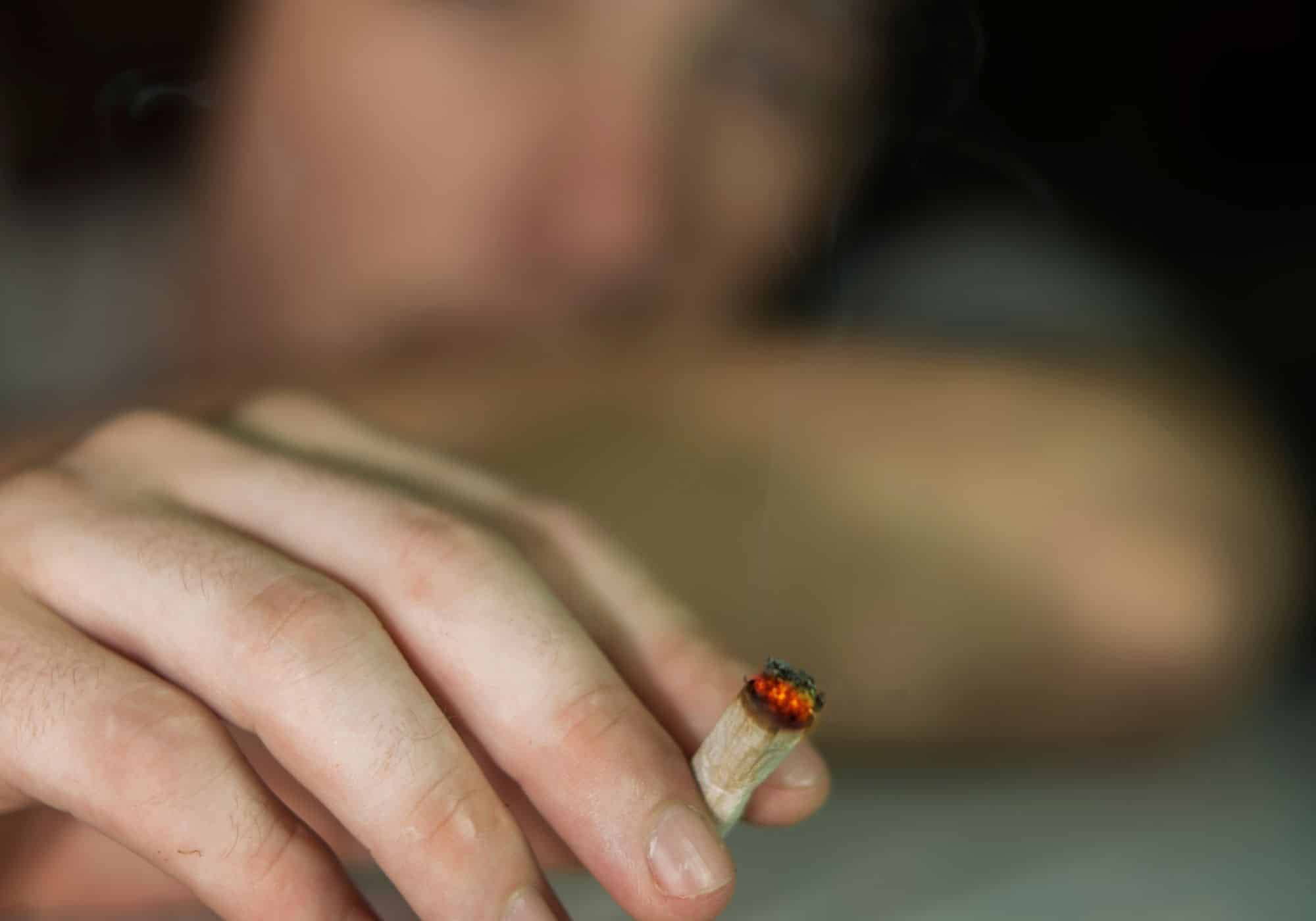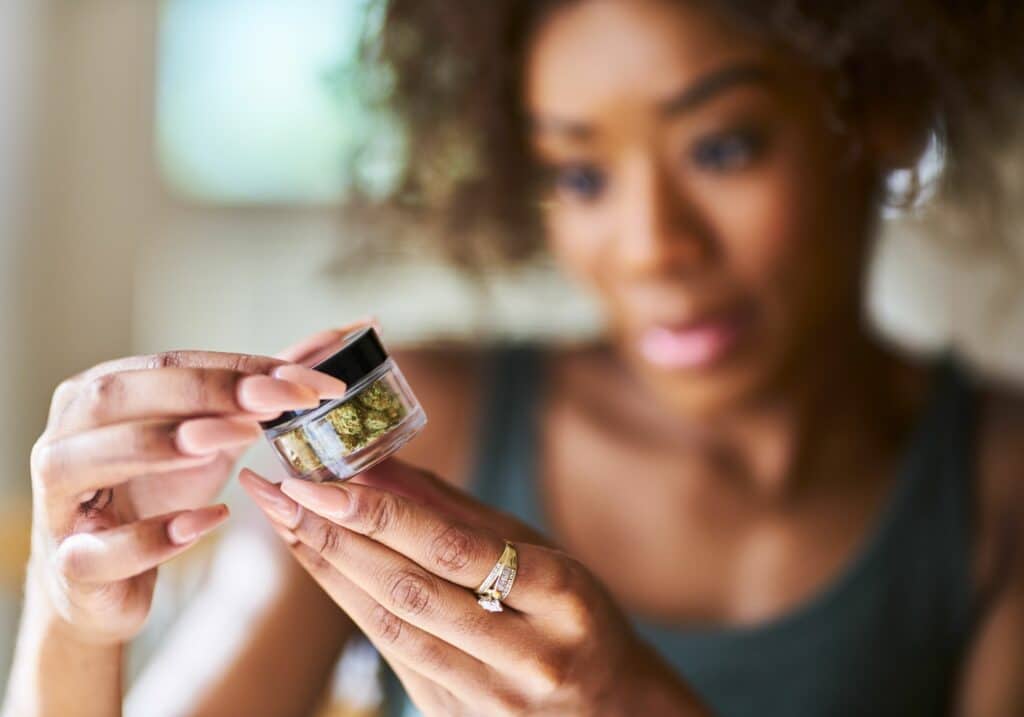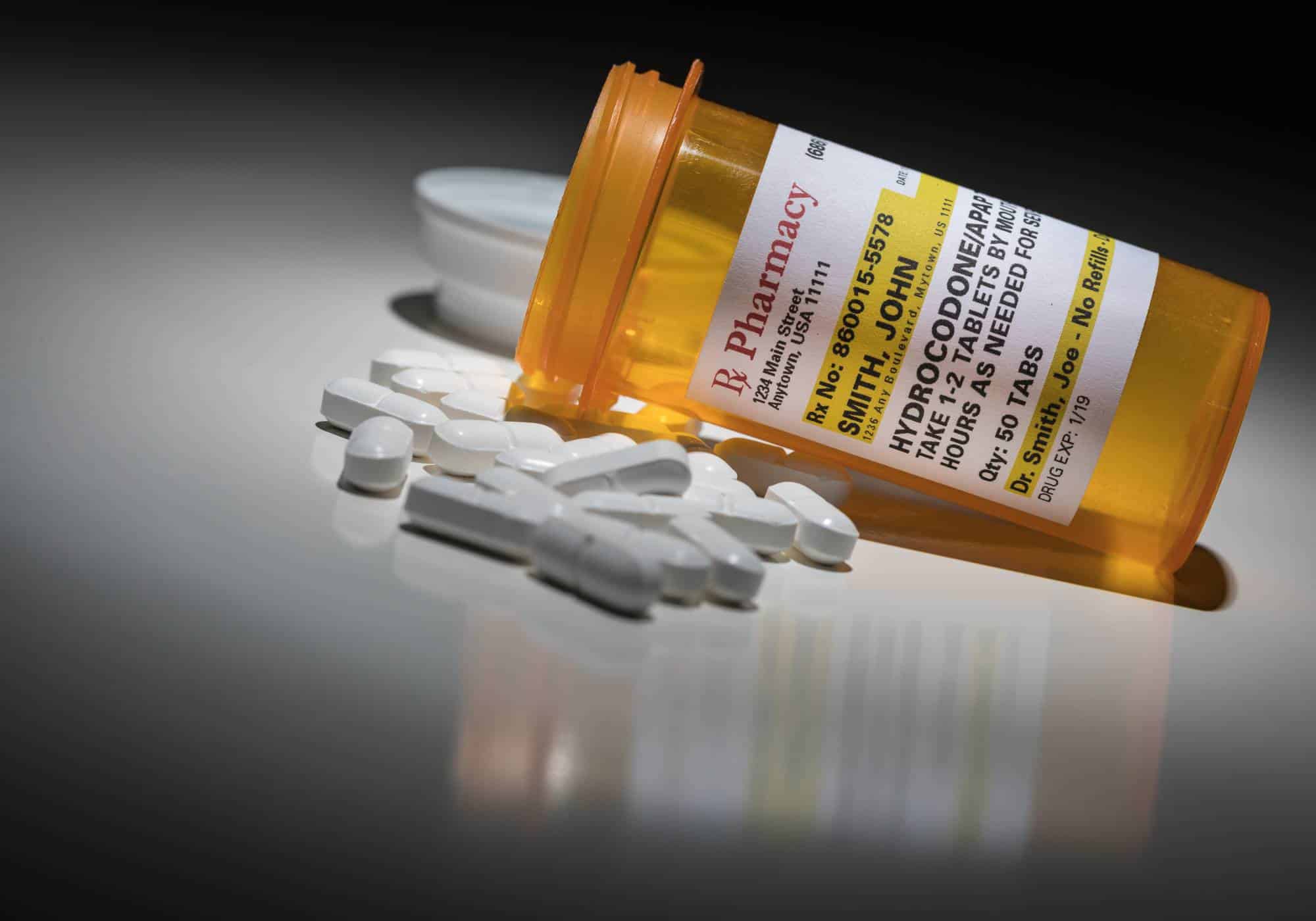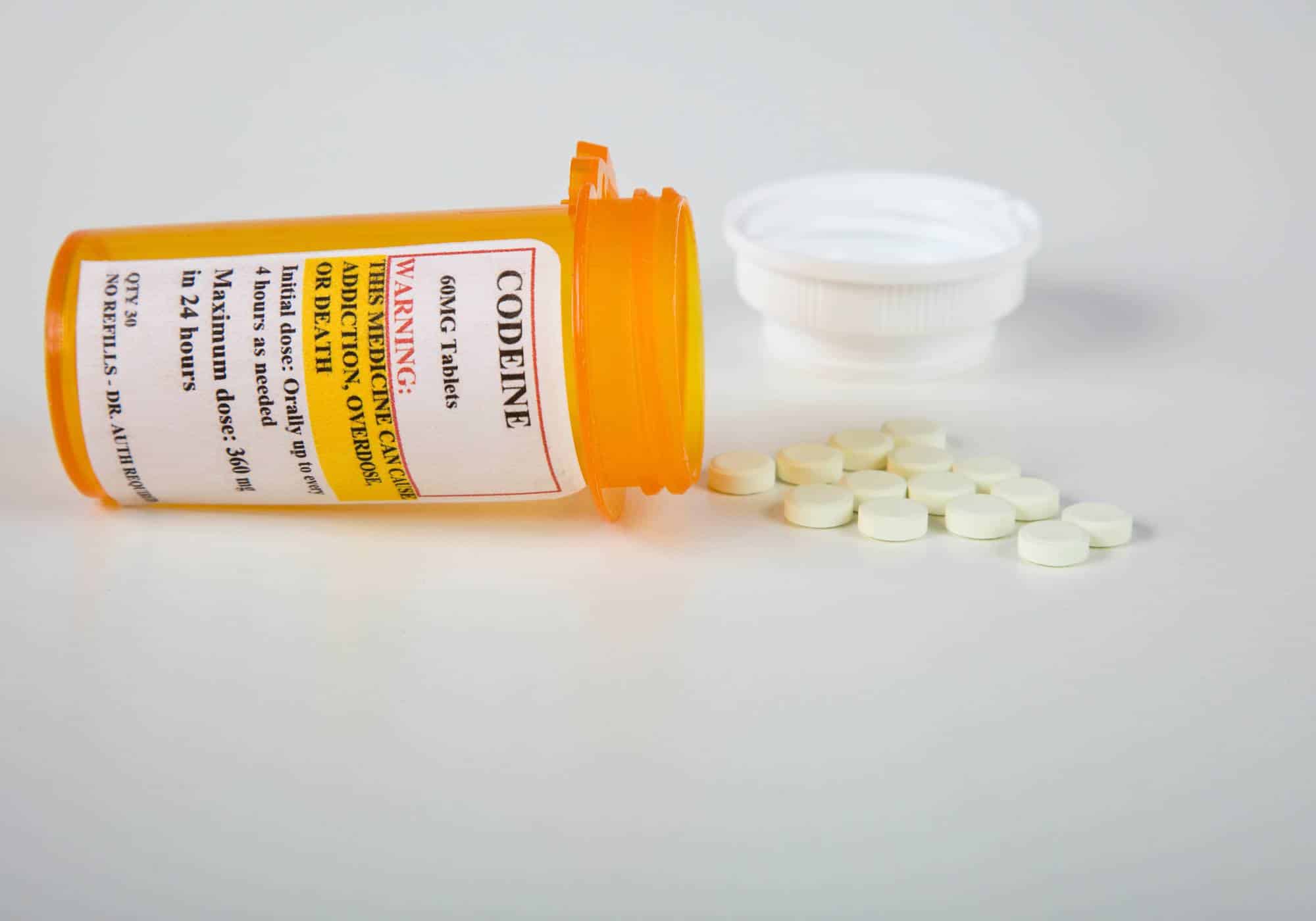At Hope Harbor Wellness, we understand the challenges that come with marijuana addiction. we offer a comprehensive approach to marijuana addiction treatment in Atlanta, GA. Our dedicated team of seasoned professionals combines proven therapeutic methods with holistic treatments, like yoga and meditation, to address the entire well-being of an individual. Our goal isn’t just to treat the addiction; we aim to support the physical, emotional, and spiritual growth of each person, guiding them toward a balanced and enriched life.
Is Marijuana Legal in Georgia?
As of now, recreational marijuana use remains illegal in Georgia. If you’re caught with marijuana, you could be facing a misdemeanor charge for personal possession or a more severe felony charge if there’s intent to sell or distribute. However, it’s worth noting that Georgia does allow medical marijuana for specific conditions. Navigating the legal landscape of marijuana in Georgia can be confusing. At Hope Harbor Wellness, we believe in keeping our community informed.
What is Marijuana Addiction?
While marijuana is often perceived as a milder substance, it’s addictive potential shouldn’t be overlooked. At Hope Harbor Wellness, we understand the subtle and sometimes overt challenges tied to marijuana use. Today, marijuana is among the top three most used addictive substances in the U.S., coming in right after alcohol and tobacco.
A significant portion, about 30%, of those who use marijuana might find themselves grappling with what experts term a “cannabis use disorder.” The stakes get higher for those who started their journey with marijuana during their younger years, specifically before the age of 18.
The hallmark of marijuana addiction is the continued use despite negative consequences in various areas of life, be it physical health, mental well-being, relationships, legal troubles, or financial stress. Breaking free from its grip on your own can be a tall order, which is why seeking expert help can be a game-changer in reclaiming your life. If you or your loved are struggling with marijuana addiction, don’t wait, call our admissions team to begin your comprehensive marijuana addiction treatment in Atlanta, GA.

What Is THC And Its Effects?
THC, or tetrahydrocannabinol, is the main force behind marijuana’s psychoactive punch. At Hope Harbor Wellness, we believe in providing clarity about substances, and THC is one that often sparks curiosity. This compound latches onto cannabinoid receptors in our brains, and that’s what gives rise to the feelings and sensations people often link to marijuana use.
THC has a hand in shaping various functions and experiences, such as:
- Playing with our short-term memory
- Distracting our focus and attention
- Tweaking how we perceive time.
- Influencing our emotions in unexpected ways
- Interfering with how we move and respond.
In simpler words, it can change the way we think, feel, and even act. Notably, as the THC concentration in marijuana rises, so does the potential for addiction. Apart from the mental changes, THC can also mix up our physical responses making us less hungry than usual.
Being informed about THC and its effects is vital, especially in a world where marijuana’s use is growing. Understanding its influence helps users make informed choices and to seek marijuana rehab if they feel they’re losing control.
Can You Overdose on Marijuana?
At Hope Harbor Wellness, part of our mission is to provide clear, accurate information about substance use. A common question we encounter is whether it’s possible to overdose on marijuana.
While there are no documented cases of fatalities directly caused by marijuana use alone, this doesn’t mean that using the drug is without risk. High doses of THC, the psychoactive compound in marijuana, can lead to some intense and uncomfortable side effects.
At Hope Harbor Wellness in Atlanta, GA, we’re dedicated to helping individuals understand the risks associated with marijuana use and offer support and marijuana addiction treatment to those who may be struggling with its effects. Whether it’s addressing overuse or managing the symptoms of dependence, our team is here to guide you towards a healthier path, call our marijuana rehab today.
Is Marijuana Truly Addictive?
At Hope Harbor Wellness, we often encounter questions about the addictive nature of marijuana. Understanding marijuana’s potential for addiction is crucial for recognizing the need for treatment and making informed decisions about its use.
Marijuana use can indeed lead to the development of a substance use disorder. This medical condition is characterized by an inability to stop using marijuana despite it causing health and social issues. When this disorder is severe, it’s commonly referred to as addiction.
Research indicates that approximately 9 to 30 percent of marijuana users might develop a marijuana use disorder. Notably, those who start using marijuana before the age of 18 are at a significantly higher risk – about four to seven times more likely than adults – to develop a marijuana use disorder.
Signs And Symptoms of Marijuana Addiction in Atlanta
At Hope Harbor Wellness, we understand that recognizing addiction is the first step toward a better, healthier life. Marijuana might be seen by many as a mild substance, but its impact can be profound for some. So, how can you tell if someone’s relationship with marijuana has crossed into risky territory? Here are some tell-tale signs to look out for:
- Using more marijuana than they had planned.
- Persistent attempts, yet often failing, to cut back on usage.
- A lot of time gets swallowed up in getting, using, or shaking off marijuana’s effects.
- Those hard-to-ignore cravings creep in.
- Missing out or messing up important stuff at work, school, or home because of marijuana.
- Even with clear issues arising, marijuana use doesn’t stop.
- Giving up hobbies or fun activities, choosing marijuana instead.
- Making risky choices, like driving, when under marijuana’s influence.
- Needing more and more marijuana to feel the same buzz.
- Feeling off or unwell if they stop using marijuana for a bit.
If any of this sounds familiar, whether it’s about you or someone you care about, know that help is within reach. Get in touch with us at Hope Harbor Wellness, and let’s take those first steps toward marijuana addiction treatment in Atlanta, GA and recovery together.

How Does Marijuana Affect the Brain?
At Hope Harbor Wellness, we believe in educating our clients and the community about the effects of substances like marijuana on the brain. Understanding these impacts is crucial for informed decisions about marijuana use and for recognizing the need for treatment.
Short-Term Effects of Marijuana on the Brain
When marijuana is smoked, its primary psychoactive ingredient, THC, quickly moves from the lungs into the bloodstream, reaching the brain rapidly. If ingested, the absorption is slower, with effects typically felt within 30 minutes to an hour.
In the brain, THC targets specific receptors that normally respond to natural THC-like chemicals involved in brain development and function. The concentration of these receptors varies across the brain, but they are abundant in areas that influence
- Sensory Perception: Like experiencing more vivid colors.
- Sense of Time: Often leading to a distorted perception of time passing.
- Mood Changes: Including feelings of euphoria or relaxation.
- Motor Coordination: Resulting in impaired movement.
- Cognitive Abilities: Affecting thinking, problem-solving, and memory.
- Hallucinations and Delusions: Particularly with high doses of THC.
- Risk of Psychosis: Especially with regular use of potent strains.
Long-Term Effects on Marijuana Brain Development
Continued marijuana use, particularly starting in adolescence, can have lasting effects. Research indicates that early and persistent marijuana use might impair functions like thinking, memory, and learning. The development of brain connections crucial for these functions could also be affected.
For instance, a notable study indicated that individuals who began using marijuana heavily in their teens and continued into adulthood experienced a drop in IQ points, which was not fully recovered even if they stopped using marijuana as adults.
Furthermore, another study highlighted that while there might be a decline in cognitive functions like verbal ability and general knowledge among marijuana users, the exact cause might extend beyond marijuana use alone, potentially involving genetic or environmental factors.
Causes And Risk Factors for Marijuana Abuse
Marijuana addiction, like other substance addictions, doesn’t have a one-size-fits-all cause. The road to addiction is often a mix of several contributing elements. At Hope Harbor Wellness, we’ve delved deep to understand the myriad factors that can lead to marijuana abuse, helping us offer more targeted and effective marijuana addiction treatments. Here’s a brief breakdown:
Underlying Factors
- Genetics: If there’s a history of substance addiction in the family, there might be a higher chance of someone developing a dependency on marijuana. Simply put, genetics can play a part in one’s inclination toward substance use.
- Brain Chemistry: Our brain has certain spots called cannabinoid receptors. They play roles in memory, focus, coordination, and other vital functions. Marijuana interacts with these areas, which can result in a “high” feeling and other related effects.
- Environment: Growing up or living in an environment where marijuana use is frequent and normalized can make it seem like no big deal. The earlier someone’s introduced to marijuana, especially during those impressionable teen years, the greater the risk of them getting too close for comfort with the substance.
Risk Factors
- Family Ties: A backdrop where substance abuse is common makes it easier for an individual to follow suit.
- Mental Health Hurdles: Those grappling with emotional or psychological challenges might turn to marijuana to cope or escape.
- Easy Access: If getting hold of marijuana is a breeze, it’s more tempting to use it.
- Peer Pressure: Hanging out with a group where marijuana use is regular can make one more likely to join in.
- Coping Crunch: Not having healthy ways to deal with stress, trauma, or other life challenges can push someone toward substances like marijuana.
Understanding these factors doesn’t just put things into perspective; it’s the first step in the direction of effective treatment. At Hope Harbor Wellness, we’re here to help navigate this journey toward a balanced, healthier life, call us today to start marijuana rehab in Atlanta, GA.
Marijuana Withdrawal
At Hope Harbor Wellness, we understand that the journey to overcome marijuana addiction isn’t just about the decision to stop. It’s also about navigating the challenges of withdrawal. Marijuana withdrawal is a crucial aspect of recovery that requires understanding and care.
When someone uses marijuana frequently and chronically, their body can develop a physical dependence. This means the body has adapted to the presence of marijuana and removing it suddenly can lead to withdrawal symptoms. These symptoms can start soon after stopping the drug and may peak within the first week, potentially lasting up to two weeks.
The experience of marijuana withdrawal can vary from person to person, but common marijuana withdrawal symptoms include:
- Irritability: A noticeable increase in frustration or anger.
- Mood Changes: Fluctuations in emotional state, sometimes rapidly.
- Sleep Difficulties Trouble falling or staying asleep.
- Appetite Reduction: A decrease in the desire to eat.
- Marijuana Cravings: Strong urges or desires to use marijuana again.
- Restlessness: Feeling unable to relax or be still.
Supportive Marijuana Withdrawal Management at Hope Harbor Wellness
Our team at Hope Harbor Wellness in Atlanta, GA, is committed to providing compassionate and effective support during this challenging phase. We understand the nuances of marijuana withdrawal and offer a range of services to help individuals cope with these symptoms. From counseling to holistic therapies, we tailor our approach to meet the unique needs of everyone.
Recognizing and effectively managing withdrawal symptoms is a critical step in the path to recovery. Our goal is not just to help you stop using marijuana but to support your journey towards lasting sobriety and wellness. If you or someone you care about is struggling with marijuana dependence, reach out to us. We’re here to help you through every step of your marijuana addiction treatment recovery journey.

Is Marijuana a Gateway Drug?
At Hope Harbor Wellness, we often encounter questions about marijuana’s role as a potential gateway to the use of other, more harmful substances. It’s a topic that merits careful consideration, especially given the nuances involved.
Research indicates a pattern where the use of less harmful substances like alcohol, tobacco, and marijuana often precedes the use of more potent drugs. Animal studies, for instance, have shown that early exposure to THC (the active compound in marijuana) can alter brain responses, making it more sensitive to other addictive substances. For example, rodents exposed to THC at a young age later showed a heightened response to addictive drugs like morphine or nicotine. These findings suggest that marijuana might act as a steppingstone to other forms of substance use.
Understanding the complexities surrounding marijuana use and its potential as a gateway drug is vital. At Hope Harbor Wellness, we aim to provide comprehensive information and marijuana treatment options, considering all aspects of substance use and addiction. Our approach is rooted in the latest research and tailored to everyone, ensuring that every person we serve receives the care and support they need to navigate their recovery journey. Reach out to our admissions team or fill out our online insurance verification form to start your marijuana rehab.
Treatment for Marijuana Addiction
At Hope Harbor Wellness, our approach to treating marijuana addiction is both holistic and personalized. We recognize that everyone’s journey to recovery is unique, and therefore, we tailor our treatment plans to meet the specific needs of each person we serve. Here’s a glimpse into our comprehensive treatment for marijuana addiction:
- Individual Therapy: Focused one-on-one sessions that delve into personal triggers and challenges.
- Group Therapy: Facilitated discussions where individuals can share experiences and learn from peers.
- Trauma Therapy: Specialized care to address any underlying trauma that may be contributing to substance use.
- Cognitive Behavioral Therapy (CBT): This helps in identifying and changing negative thought patterns and behaviors.
- Dialectical Behavior Therapy (DBT): Aims at improving emotional regulation and developing coping mechanisms.
- Red Light Therapy: A novel approach that uses light to improve mental well-being.
- Neurofeedback Therapy: Utilizes brainwave training to enhance emotional control and reduce cravings.
- Biosound Therapy: Combines biofeedback, sound therapy, and visual imagery for relaxation.
- Family Therapy: Involves loved ones in the treatment process to heal relationships and build support systems.
- Holistic Therapy: Addresses overall well-being, including physical, emotional, and spiritual health.
- Medication-Assisted Treatment: If needed, medications are used to manage withdrawal symptoms and cravings.
- Genetic Testing: To understand any genetic predispositions and tailor treatment accordingly.
- Psychiatry: Addresses any co-occurring mental health conditions.
- Experiential Therapy: Includes activities that foster self-discovery and emotional expression.
Marijuana Rehab Cost and Insurance Coverage
The introduction of the Affordable Care Act (ACA) has significantly altered the approach to substance use disorder (SUD) treatment, including marijuana rehab. Before the ACA’s implementation, many private and public health insurance plans rarely covered treatment for substance use disorders. When they did, the coverage was often limited, and higher co-pays were common. However, the ACA brought about substantial changes and expanded coverage, making SUD treatment more accessible. It now requires that treatment for substance use disorders, including marijuana rehab, be covered on an equal footing with other medical or surgical treatments.
However, coverage specifics can differ from one insurance plan to another. It’s important for individuals seeking treatment to contact their insurance provider directly to confirm the extent of their benefits for marijuana rehab. In addition to insurance, many treatment facilities are open to other payment methods. For instance, they often accept credit cards and may offer various financing options to help cover the costs of treatment. This flexibility can help ease the financial burden and ensure that those in need of marijuana rehab can access the necessary care. Contact our admissions team or fill out our online insurance verification form to determine if your insurance covers some or all of your marijuana rehab in Atlanta, GA.

Looking for Marijuana Rehab Near Me?
Searching for “marijuana rehab near me” or “marijuana addiction treatment near me” in Atlanta, GA? You’re taking a crucial step towards recovery. Our center offers specialized marijuana rehab programs designed to address your unique needs. We understand that overcoming addiction is a personal journey, and our expert team is committed to providing compassionate and effective care. With a focus on holistic treatment and evidence-based therapies, we guide each individual through their recovery process in a supportive environment. Don’t let marijuana addiction hold you back; reach out to us for tailored treatment solutions that can help you regain control and start a new chapter in your life.
Begin Marijuana Addiction Treatment in Atlanta
Taking the first step toward recovery from marijuana addiction can feel daunting, but at Hope Harbor Wellness in Atlanta, we’re committed to making this journey as supportive and effective as possible.
Recognizing that everyone’s experience with marijuana is unique, we consider various factors such as the frequency of use, presence of co-occurring disorders, and any polysubstance use. This comprehensive assessment ensures that your marijuana treatment plan at Hope Harbor Wellness is tailored just for you.
If you or a loved one is facing challenges with marijuana use, remember, effective help is available. At Hope Harbor Wellness, we’re dedicated to helping you find the right program to fit your needs and set you on the path to a healthier, marijuana-free life. Reach out today, and let’s embark on this journey together at our marijuana addiction treatment center in Atlanta, GA.
Marijuana Addiction Treatment Frequently Asked Questions
Can You Get Addicted to Marijuana?
Yes, it is possible to develop an addiction to marijuana. Regular use can lead to dependence, characterized by a need to use marijuana to feel normal, cravings, and experiencing withdrawal symptoms when not using.
How Addictive Is Marijuana?
The addictive potential of marijuana varies among individuals. Factors like frequency of use, genetic predisposition, and the presence of mental health disorders can influence addiction risk. While not everyone who uses marijuana becomes addicted, a significant portion of users do develop dependence.
Is Marijuana Physically Addictive?
Marijuana is primarily psychologically addictive, but it can also lead to physical dependence. Regular users may experience physical withdrawal symptoms like headaches, sleep disturbances, and changes in appetite when they stop using.
What Are the Signs of Marijuana Addiction?
Signs include increased tolerance, withdrawal symptoms like irritability and insomnia, using more than intended, and continued use despite negative consequences. Treatment involves behavioral therapies, counseling, and support groups.
How Does Marijuana Addiction Impact Mental Health?
Chronic marijuana use can lead to or exacerbate mental health issues such as anxiety, depression, and in severe cases, psychosis. Treatment typically addresses both the addiction and any co-occurring mental health disorders.
Can Marijuana Addiction Be Treated Through Intensive Outpatient Programs (IOP)?
Yes, IOPs are effective in treating marijuana addiction, particularly for those with mild to moderate addiction. These programs allow individuals to receive regular therapy and counseling while maintaining their daily life activities.
What Is Partial Hospitalization Program (PHP) for Marijuana Addiction?
PHP provides a structured yet flexible treatment approach for marijuana addiction. It offers more intensive care than IOP, including daily therapy sessions, while allowing patients to return home each day, balancing treatment with personal life.
What Are the Symptoms of Marijuana Withdrawal?
Symptoms of marijuana withdrawal can include irritability, mood changes, sleep difficulties, decreased appetite, restlessness, and physical discomfort. These symptoms typically begin within a week after discontinuing use and can last up to two weeks, varying in intensity based on usage patterns and individual factors.
How Does Marijuana Affect the Body?
Marijuana affects the body in various ways, including altering heart rate, impacting lung function, and affecting coordination and reaction time. Long-term use can lead to respiratory issues, potential cardiovascular risks, and in some cases, cognitive impairments. Understanding these effects is crucial in both prevention and treatment of marijuana addiction.









